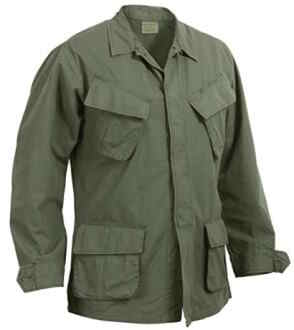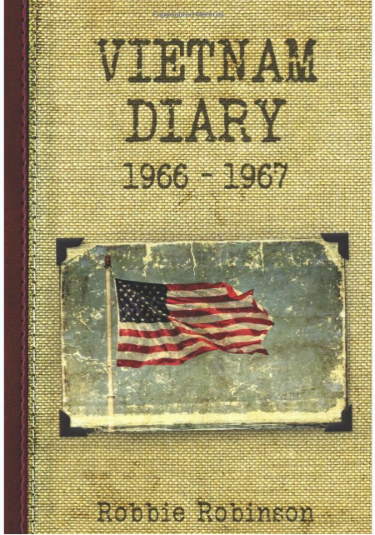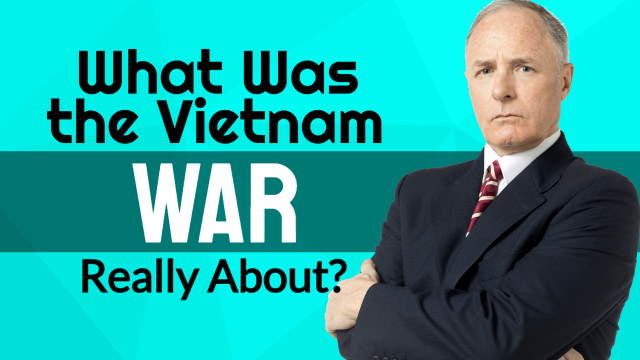As time goes by and memories fade, one question occurs again and again and it's; “What Was the Vietnam War Really About?“. Here we try to answer that question and provide readers with a flavour of what it was really like in action on the battlefield. We also offer a deeper perspective on the experiences of one participant in our book review below.
What Was the Vietnam War Really About?
The Vietnam War started out as a sort of humanitarian assistance program to free the Vietnamese people from the oppression of communism during the cold war.
 There was a belief at the time in the US that the communists would conquer the world if they were not stopped from pedalling their infectious “red” doctrine. It was a misdirected crusade to hold back the threat to capitalism which it was believed would follow if Ho Chi Min, ruler of China, was not defeated.
There was a belief at the time in the US that the communists would conquer the world if they were not stopped from pedalling their infectious “red” doctrine. It was a misdirected crusade to hold back the threat to capitalism which it was believed would follow if Ho Chi Min, ruler of China, was not defeated.
Let's not forget that he was inspired by Chinese and Soviet communism and it was he who formed the Viet Minh, (the League for the Independence of Vietnam). Not surprisingly the world was fearful of the consequences if he was not stopped from colonizing Vietnam.
More and More Forces Sucked Into War
The war gradually sucked more and more forces into a war that the US politicians and military advisors thought at the start would be an easy win. The war in South Vietnam was portrayed as not being an isolated, local conflict, irrelevant to American national security as it surely was. On the contrary, it was depicted as one which was inseparable from the nation’s highest priority — the Cold War struggle to contain Communism around the globe. Further raising the stakes, policymakers warned that if South Vietnam fell to Communism, neighboring countries would inevitably fall in turn, one after another, like a row of dominoes.
The “domino theory” was strongly held by many people at the time. Domino theory considered that if one Southeast Asian country fell to communism, many other countries would follow.
Check the Current PriceDomino Theory
Three decades later, Robert McNamara, a key architect of the Vietnam War who served as defense secretary for both Presidents Kennedy and Johnson, renounced those wartime claims — the very ones he and others had invoked to justify the war. In two books, “In Retrospect” (1995) and “Argument Without End” (2000), McNamara conceded that the United States had been “terribly wrong” to intervene in Vietnam. He attributed the failure to a lack of knowledge and judgment. If only he had understood the fervor of Vietnamese nationalism, he wrote, if only he had known that Hanoi was not the pawn of Beijing or Moscow, if only he had realized that the domino theory was wrong, he might have persuaded his presidential bosses to withdraw from Vietnam. Millions of lives would have been saved. If only. via NY Times.com.
A Ferocious Fight
They weren't expecting the ferocious fight from the communists in Vietnam. The US simply wanted to help a fledgling democracy which was bravely holding out against the communist regimes and attitudes of the day.
The US was in effect still fighting the post-World War 2 “Cold War”. This meant that they were determined not to be seen as weak, by retreating. There was more at stake than the country that they were fighting for, it was their global reputation for dominance, as the world's great superpower. That obstinacy, the unwillingness to stand back and look at the true cost in lives is what caused so much trouble back home.
Lesson: Never Start a War Without a Strong and Equally Clear Objective
The experience should have taught the Americans a lesson in not starting a war without a very strong and equally clear objective, and a plan to get out again afterwards.
They wanted to do a good job while not sacrificing life. It was unrealistic because the “Red Army” was a highly motivated battle-hardened force. They had no compunction about killing, and as a result, it ended up costing a lot more lives than it should have.

It has often been said that the US nation back home was not really committed to the conflict. Neither the politicians nor the public really understood what it would take to get the job done.
Only when the troops got into it were they able to see what it would take to win. The ruling classes were persuaded that the Vietnam War was worth the loss of life. However, the public could only see that their boys were away being killed for no real progress, and they cared little for the liberty of the Vietnamese far away from their shores.
The public in America was also very much shielded from the truth of the war by their government. This went on for many years and many say that they were often lied to by politicians, about the progress of the war.
This also contributed to a rebellion among young people which grew during the Vietnam War period against the cultural values that had gone before them. Post-war America had been a place of hard work, discipline, and responsibility for something other than our own individuality. However, they generally saw no purpose in serving in the Vietnam War when they would be no more than cannon fodder, for a cause for which they had little sympathy.
The war ended when U.S. forces withdrew in 1973 and Vietnam unified under Communist control two years later.
Why Did We Lose The Vietnam War?
It is remarkable that the US lost the Vietnam War. At the time they were the most powerful military force in the world's history. Their technology of the day far exceeded that of all other countries globally. Plus, their forces had triumphed during the second world war and had made mincemeat of several other opponents since.
Tremendous respect for those young soldiers usually serving their 1-year conscription, who went to do a job that was very worthwhile in order to champion liberty and democracy. Sadly, very many ended up dying for it while their own people back home mostly failed to support the goal. It still makes many people very angry to think about how many of the youth of the nation at that time gave the ultimate sacrifice of their lives.
What can be seen as astonishing is the way in which the US establishment has repeated much the same mistakes since, embarking on a war without a proper plan? The conflict in Iraq in the early 2000s suffered from the exact same lack of direction.
Check the Current PriceA Journal Of One Young Boy's Tour Of Duty In Vietnam 1966 – 1967: Book Review
Like lots of veterans of the Vietnam War, it has taken me a long time to get back to normal life. Include in the physical results of chemicals like Agent Orange and the “long time back” stretches into decades. Thousands of troops, myself included, were exposed to this hazardous drug. I have actually battled cancer 4 times successfully, more than I can state for the lots of who passed away.
To compose a journal of these events was difficult, as you might envision. Fortunately, I had the letters I had actually written home to my family as well as a journal I kept intermittently while overseas. These form the basis of the book in addition to some poetry written at the time and my own remembrances of things not in the letters and journal.

I believe my writing at the time was quite unpolished. However, I wished to leave it that way so you might see the war and times through the eyes of a 19-year-old kid caught up in the very first controversial war in American history. There is no guile, no glossing over of the truths, just a forthright tale of the goings-on in the war zone.
Check the Current PriceIf I have actually done anything of importance in life it is this book which is dedicated to all those who fought there, to all those who suffered later in life from the experience, and to the lots of buddies I lost there. And to my family who kept me strong with their love.
Had his wife not motivated him to write he would never have actually completed the book.
Back in 2015, he noted that the e-book version of his journal had even at that time been downloaded over 600 times. That was only a few days after publication. He thanked Amazon for making it easy to deliver this book into people's hands.
He said that his purpose was:
“to provide some reality and hard truth on an already fading memory of that time in history.”
Vietnam Diary 1966 – 1967
The Vietnam Diary 1966 – 1967 is a collection of letters, journal entries, and poetry written during a young man's tour of duty in Vietnam. It consists of images and flashbacks that occurred during the author's writing of the book and is illustrative of the lives of the thousands of troops that experienced that controversial war.
The author joined the Marine Corps in 1966 and by the fall of that year was in Vietnam in the 2nd Battalion, 3rd Marine Division in Golf Company, Weapons Platoon, and was posted as a machine gunner. He took part in 2 major battles, lots of smaller ones, and was wounded twice.
The journal is a chronological account of his year there starting from boot camp in San Diego to his last days in the service. Mixed with his actual journal entries are letters he writes home to his family and poetry he composed that reflects his response to the war, battle, and death.
The letters to his dad and his mother and sis are noticeably different in content and tone, the journal entries the musings of a young kid far from his family for the very first time in terrible conditions, the poetry fresh with promise, and the remembrance's oft-times painful. By the method of example:
Excerpt from a Letter to Dad:
“We are hardly conventional troops, though they call us that back home for political as well as social reasons, but we use much the same tactics as do the VC short of torture, killing of innocents, etc. although there are scattered incidents of these as in any war.”
“But we hide in the field, search and destroy, sweep, ambush, etc. generally being miserable, wet, hungry, cold-hot, and wishing we were home.”
Excerpt from a Letter to Mom & Sis:
“I received my tentative orders and I’m scheduled to go overseas Nov. 21, so it looks like I’m not going to get a chance to see you before I go. There isn’t real need, for love explains and shows all, and it is enough to carry me across those waters. I love you both and I know that I am loved, so I’m content until I return next fall.”
Excerpt from a Journal Entry:
“Relatives and family…worry. They worry about me and I worry about them worrying about me. Winds flowing every way and I’m coming back…worry is ungood and bothers. Forget and live life as I’m doing on my part with death possibly just around over there… Part of a poem written after six months in-country: What brings me here? What leads my path To find this dreary horror Singing a muddy melody of Blood and lost friends? Perhaps a quiet somebody will Come leading me by the hand To sit and explain those things And all things and, and…”
Excerpt from a Remembrance:
”I could feel the bullets whizzing around my head like angry hornets and then there was a loud clap next to my face with the sonic slap of a bullet that just missed me. I crouched down unable to see where it came from, cursing and angry then got up and moved forward. Eventually, the firing stopped. No one was hurt and that bullet didn’t have my name on it. Still left me shaking.”
The author served a 2-year enlistment and was honorably discharged as a Lance Corporal with 2 Purple Hearts. He was exceptionally influenced by the war both physically and mentally and it significantly changed the way he looks at life.
In 1997 he was diagnosed with Non-Hodgkin's Lymphoma due to his direct exposure to Agent Orange, the chemical herbicide and defoliant made primarily by Monsanto that U.S. forces sprayed extensively in order to kill flora in the Vietnamese jungle and expose Viet Cong hideouts.
Check the Current PriceMonsata Blamed for Deaths
His Epilogue credits Monsanto for destroying his life and the lives of a lot of others following the war.
Click this link for more on this Vietnam War product
(Book review originally Published: Jun 30, 2015)





Thank you for your very good posts.
Not many know anything about what the Vietnam war meant. All the pain and deaths of young Americans fighting for a dubious cause. It was such a short time ago. Will we ever learn to STOP wars?
Keep up writing superb content articles!